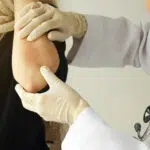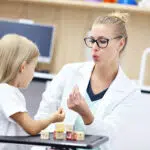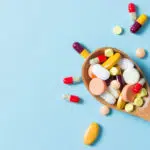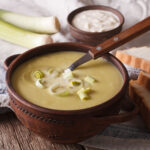What is World Antibiotics Awareness Week?
World Antibiotic Awareness Week raises our consciousness every November 18-24 about antibiotic resistance and how the medical community is educating us about the proper use of these disease-fighting drugs. The World Health Organization (WHO) defines it this way: “Antibiotic resistance occurs when bacteria change in response to the use of these medicines. Bacteria, not humans or animals, become antibiotic-resistant.”
World Antibiotics Awareness Week History
The World Health Organization (WHO) projects a sense of urgency around the global issue of antibiotic resistance — and with good reason. If you develop an illness or an infection that can’t be treated in the traditional way with antibiotics, you can die. It’s as simple as that.
WHO saw this as an increasing problem all over the world as poverty-driven conditions caused illnesses and infections that were increasingly resistant to antibiotics. In May, 2015, the World Health Assembly upgraded this antibiotic resistance to an international emergency. WHO described the problem as “New resistance mechanisms are emerging and spreading globally, threatening our ability to treat common infectious diseases. A growing list of infections – such as pneumonia, tuberculosis, blood poisoning, gonorrhoea, and foodborne diseases – are becoming harder, and sometimes impossible, to treat as antibiotics become less effective.”
WHO outlined five goals about global antibiotic resistance including: raising awareness, increasing monitoring and research, reducing infections, making the best use of antimicrobial medications and committing to “sustainable investment.”
Most importantly, these goals formed an antibiotics resistance framework that nations could use to prioritize medical experts and researchers in their countries and to allocate resources. In addition to preventing antibiotic resistance in humans, national action plans were to align with global efforts in creating antimicrobial medications for better animal health as well as use in agriculture. Countries were to report back to the WHO health assemblies by 2017. Since then, there’s been increasing news coverage, both locally and internationally, on the widening problem of antibiotic resistance.
To learn more about what’s happening around the world and what you can do in your own backyard, log onto WHO’s website and download great materials for events and discussions that you can join or start yourself around a global menace — resistance to antibiotics.
World Antibiotic Awareness Week timeline
The World Health Organization (WHO) considers antibiotic resistance a high priority. To tackle it, WHO endorses a global action plan on antimicrobial resistance, which also inspires World Antibiotic Awareness Week.
Doctors Ernst Chain and Howard Florey, who successfully developed Sir Alexander Fleming's penicillin molecule into a therapeutic drug, share the Nobel Prize in Medicine with Dr. Fleming, who discovered the antibiotic properties of penicillin, but was later unable to develop it into a useful drug on his own.
Sir Alexander Fleming continues researching the antibiotic powers of molds, eventually realizing that the mold must secrete an antibacterial substance, an antibiotic ,which he names “penicillin.”
In Germany in the late 1880s, Paul Ehrlich records notes that certain dyes would color human, animal, or bacterial cells, while others would not. The notes form the basis of his discovery of salvarsan (today known as arsphenamine), the first antibacterial medicine.
Following up on mold research by doctors such as Sir William Roberts and Louis Pasteur, an Italian physician named Vincenzo Tiberio published a paper on the antibacterial properties of some extracts of mold. His discoveries would help lead directly to what we think of today as modern antibiotics such as penicillin.
World Antibiotic Awareness Week FAQs
What is World Antibiotics Awareness Week?
According to the World Health Organization, which started this campaign in May of 2015, “World Antibiotic Awareness Week aims to increase awareness of global antibiotic resistance and to encourage best practices among the general public, health workers and policy makers to avoid the further emergence and spread of antibiotic resistance.”
Why is antibiotic resistance important?
Antibiotics kill bacteria-causing infection and diseases. But there are some diseases where bacteria can grow stronger and even multiply, despite antibiotics. This means deadly diseases can spread unchecked without stronger antibiotics.
How can we prevent antibiotic resistance?
There are several ways to prevent antibiotic resistance including talking to your healthcare worker on whether or not you really need an antibiotic and by making sure you don’t keep antibiotics until your next illness by taking all antibiotics exactly as prescribed.
How to Observe World Antibiotic Awareness Week
Teach your kids how to help prevent bacterial infections
Preventing infections from happening in the first place is the best defense against antibiotic resistance. Basic cleanliness is the rule: wash hands frequently, keep cuts and scrapes cleansed and properly bandaged and minimize contact with family members when they're sick. Keeping the home environment clean taking precautions when you prepare food properly sounds like common sense, but this is a great week for a reminder to be extra vigilant!
Learn about foods with antibiotic qualities
The Greek physician Hippocrates said, "Let thy food be thy medicine, and thy medicine be thy food." Fruits and vegetables tend to be high in vitamin C, a health fighter that strengthens your immune system and reduces infections.The allium family, including garlic, onions, shallots and chives, is rich in allicin, a compound with both antimicrobial and antifungal properties. For over 2000 years, honey has been used as an antibacterial, especially when it's combined with cinnamon. As a word of caution, always check with your doctor, naturopath, or nutritionist before making dietary changes.
Cultivate happiness!
Did you know that your mood can contribute to your overall health? It’s widely believed that happy people have a much lower rate of bacterial infections and other diseases. And when they do get sick, they're back on their feet much more quickly. So this week, let's all focus on doing things that make us happy, whether that's dancing around the house, singing karaoke-style, or just taking a long stroll to enjoy the fall foliage.
5 Surprising Facts About Antibiotic Resistance
Antibiotic resistance is a global issue
During World Antibiotic Awareness Week, it's important to remember that we are all potentially affected — no matter where we live or how advanced our medical education and practices may be.
Antibiotic resistance is the result of natural evolution
When microorganisms are exposed to an antibiotic, the weaker microorganisms are killed, leaving behind the more resistant ones, which can pass on the greater resistance to their offspring.
Resistance can be caused by using antibiotics inappropriately
Simply taking antibiotics in the wrong dosage (either too much or too little) can increase the possibility of resistance by not effectively treating the infection, so be sure to ask your doctor if you don’t understand how to use your medicine.
Poor-quality medicines can contribute to resistance
Worldwide, quality control for medications tends to be weak, and when sub-standard drugs are administered, they may not be as effective as they should be in eradicating bacterial infections, which in turn makes it more likely the infection can be spread.
Better infection prevention and control can help reduce antibiotic resistance
Ironically, hospitals, with all their sterile practices, are consistent contributors to the problem of antibiotic resistance, because patients hospitalized with infectious diseases can pass those organisms to other patients, increasing the likelihood of resistance developing.
Why World Antibiotic Awareness Week is Important
It reminds us that we're partners with our medical professionals
It's easy to think that it's up to our doctors to take care of our health, but the opposite is true: we have to assume responsibility for ourselves. That means knowing when to visit a doctor so we come prepared with the facts, details, and questions to help medical professionals quickly reach a diagnosis and prescribe appropriate treatment.
It alerts the public to a global health issue
With the World Health Organization focusing this year on antibiotic resistance, it's the perfect time to educate ourselves on this topic. If this week happens to coincide with a trip to your doctor, and your doctor prescribes an antibiotic, ask him or her about the medication: why is that particular antibiotic appropriate for your particular illness? What results can you expect, and how long will that take?
It encourages us to brush up on antibiotic basics
Many people are not aware that antibiotics can’t treat viruses; they are only effective against bacteria. (This is why there's still no cure for the common cold, which is virus-based.) So, if your doctor diagnoses a virus-type illness, don't insist on a prescription for an antibiotic because it may not help you. (There may be some exceptions, so do discuss this with your doctor.)
World Antibiotic Awareness Week dates
| Year | Date | Day |
|---|---|---|
| 2025 | November 18–24 | Tuesday–Monday |
| 2026 | November 18–24 | Wednesday–Tuesday |
| 2027 | November 18–24 | Thursday–Wednesday |
| 2028 | November 18–24 | Saturday–Friday |
| 2029 | November 18–24 | Sunday–Saturday |















